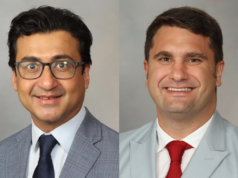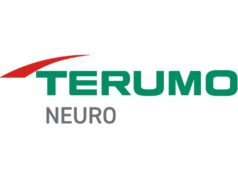The first patient has been enrolled in the ENRICH (Early minimally-invasive removal of ICH) randomised clinical trial (RCT). This trial is designed to determine the procedural safety, as well as the economic and functional benefit, of early surgical removal of intracerebral haemorrhage using the BrainPath Approach compared to the medical management standard of care. The BrainPath Approach uses a combination of technologies, including the FDA-cleared NICO BrainPath (NICO Corporation) for non-disruptive access and NICO Myriad to achieve the goal of maximum clot evacuation.
ENRICH is a multicentre trial sponsored by NICO and led by the Emory Stroke Center of Emory University hospitals and the Marcus Stroke & Neuroscience Center of Grady Memorial Hospital, Atlanta, USA. The 300-patient trial is unique in that the multidisciplinary teams of stroke neurology, neurosurgery and neuro-critical care physicians are participating at a minimum of 15 trial sites. Ideal trial candidates are spontaneous supratentorial ICH patients meeting established and well-defined criteria for study enrolment.
“Our initial clinical results with this approach for early clot removal have been exciting and provided a wake-up call to what has been missing in haemorrhagic stroke care,” says Daniel Barrow, chief of Neurosurgery at Emory University Hospital and one of three principal investigators of the trial.
“We are seeing encouraging results with our patients and added economic benefit to our hospital, adds Gustavo Pradilla, chief of Neurosurgery Service at Marcus Stroke & Neuroscience Center, Grady Health System, assistant professor of Neurosurgery at Emory University School of Medicine, and principal investigator of the ENRICH trial. “This trial will help us determine in a scientifically valid manner if a precise surgical technique to avoid additional injury to the brain and early evacuation of blood contributes to improved clinical and functional outcomes.”
The current standard of care for ICH calls for medical management of the patient, or a “watch and see” protocol that often allows blood to remain in the brain. The ENRICH trial goal is to compare the efficacy and safety of standard medical management of ICH to early surgical evacuation (less than 24 hours) using a parafascicular (parallel to the brain’s fibre tracts) and trans-sulcal surgical approach that can result in maximum clot removal, durable haemostasis, and functional improvement of the patient.
“Scientific evidence from prospective and retrospective studies has produced strong clinical data from prestigious academic and community centres showing that successful surgical treatment for ICH can and does exist,” said Jim Pearson, president and CEO of NICO Corporation. “We have created groundbreaking technologies used in the trial that create navigation-compatible access to the brain in a way that has never been done before. What we are most excited about is the possibility of showing functional recovery in this very deadly and costly disease state.”
Jonathan Ratcliff, co-principal investigator of the ENRICH trial and assistant professor of emergency medicine and neurocritical care at Emory University, said the evidence has been building for a couple of years on this new standardised approach to early surgical evacuation of ICH, which led to this important trial.
“The idea of including multidisciplinary teams benefits patients and study subjects enrolled in the trial by ensuring exceptional execution of the clinical trial along with delivering the highest quality care in a well-coordinated fashion,” Ratcliff said. “This alone comforts a lot of families and provides a foundation of hope for a better outcome for their loved one.”









